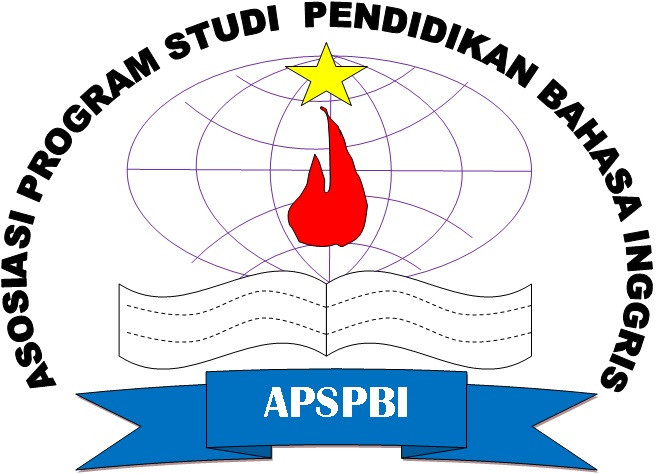Title:
Covid-19-Triggered Online Learning Implementation: Pre-Service English Teachers’ Beliefs
Author:
Abstract
The study investigated nine pre-service English teachers’ beliefs on the implementation of online learning due to the Covid-19 pandemic in their English Language Education Department. The study used secondary data in the forms of the participants’ written reflections on the implementation of online learning they experienced through their viewpoints both as students and as English teacher candidates. Qualitative document analysis in the form of Thematic Analysis was used to further analyse the data. The study found three factors hampering effective online learning, which were inadequate supporting infrastructures or resources, teachers’ limited pedagogical skills in effectively managing online learning, and the lack of teacher-student and student-student social connections during the learning process. The study also found two perceived good practices, the combination of synchronous and asynchronous modes, which could ease learners’ burden and boost learning effectiveness, and teachers' understanding of learners' struggle manifested in their facilitating actions. Based on the findings, the study's possible contributions and limitations are stated along with suggested directions for future studies in the field.
Keywords
Full Text:
PDFReferences
An, Y.-J., & Reigeluth, C. (2011). Creating technology-enhanced, learner-centered classrooms. Journal of Digital Learning in Teacher Education, 28(2), 54–62. https://doi.org/10.1080/21532974.2011.10784681
Bao, W. (2020). COVID-19 and online teaching in higher education: A case study of Peking University. Hum Behav & Emerg Tech, 2020, 1–3. https://doi.org/10.1002/hbe2.191
Basilaia, G., & Kvavadze, D. (2020). Transition to online education in schools during a SARS-CoV-2 Coronavirus (COVID-19) Pandemic in Georgia. Pedagogical Research, 5(4), 1–9.
Bowen, G. A. (2009). Document analysis as a qualitative research method. Qualitative Research Journal, 9(2), 27–40.
Braun, V., & Clarke, V. (2006). Using thematic analysis in psychology. Qualitative Research in Psychology, 3(2), 77–101.
Creswell, J. W. (2014). Research design: Qualitative, quantitative, and mixed methods approach. Sage Publications, Inc.
Czerniewicz, L. (2020). What we learned from "going online" during university shutdowns in South Africa. PhilOnEdTech. https://philonedtech.com/what-we- learnt-from-going-online-during-university-shutdowns-in-south-africa/
Doghonadze, N., Aliyev, A., Halawachy, H., Knodel, L., & Aledoyin, A. S. (2020). The degree of readiness to total distance learning in the face of COVID-19 - Teachers views. Journal of Education in Black Sea Region, 5(2), 2–41. https://doi.org/10.31578/jebs.v5i2.197
Eko, A., Atmojo, P., & Nugroho, A. (2020). EFL classes must go online! Teaching activities and challenges during COVID-19 pandemic in Indonesia. Register Journal, 13(1), 49–76.
Ertmer, P. A. (1999). Addressing first-and second-order barriers to change: Strategies for technology integration. Educational Technology Research and Development, 47(4), 47–61.
Ertmer, P. A. (2005). Teacher pedagogical beliefs: The final frontier in our quest for technology integration? Educational Technology Research and Development, 53(4), 25–39.
Fu, J. S. (2013). ICT in education: A critical literature review and its implications. International Journal of Education and Development Using Information and Communication Technology (IJEDICT), 9(1), 112–125.
Galvis, H. A. (2012). Understanding beliefs, teachers’ beliefs, and their impact on the use of computer technology. PROFILE, 14(2), 95–112.
Gonzalez, D., & Louis, R. St. (2018). Online learning. In J. I. Liontas (Ed.), The TESOL encyclopedia of English language teaching (First Edit). https://doi.org/https://doi.org/10.1002/9781118784235.eelt0423
Gray, D. E. (2014). Doing research in the real world (3rd Editio). Sage Publications, Ltd.
Green, P. (2016). How to succeed with online learning. In D. N.
Rushby & W. Surry (Eds.), The Wiley handbook of learning technology (First Edit, pp. 261–286). https://doi.org/https://doi.org/10.1002/9781118736494.ch15
Gunawan, G., Suranti, N. M. Y., & Fathoroni, F. (2020). Variations of models and learning platforms for prospective teachers during the COVID-19 pandemic period. Indonesian Journal of Teacher Education, 1(2), 61–70.
Hsu, P.-S. (2016). Examining current beliefs, practices, and barriers about technology integration: A case study. TechTrends, 60(3), 30–40. https://doi.org/10.1007/s11528-015-0014-3
Incecay, G. (2011). Pre-service teachers’ language learning beliefs and effects of these beliefs on their practice teaching. Procedia - Social and Behavioral Sciences, 15, 128–133. https://doi.org/10.1016/j.sbspro.2011.03.061
Kim, C., Kyu, M. K., Lee, C., Spector, J. M., & Demeester, K. (2013). Teacher beliefs and technology integration. Teaching and Teacher Education, 29, 76–85. https://doi.org/10.1016/j.tate.2012.08.005
Lancker, W. V., & Parolin, Z. (2020). Comment COVID-19, school closures, and child poverty: A social crisis in the making. The Lancet Public Health, 2019(20), 2019–2020. https://doi.org/10.1016/S2468-2667(20)30084-0
Messer, J. (2020). Turning it inside out: Independent reading in the middle school classroom. Illinois Reading Council Journal, 48(2), 3–18.
Mondol, S., & Mohiuddin, M. G. (2020). International Journal of Social, Political and Economic Research. International Journal of Social, Political and Economic Research, 7(2), 231–247.
Moorhouse, B. L. (2020). Adaptations to a face-to-face initial teacher education course ‘forced’ online due to the COVID-19 pandemic. Journal of Education for Teaching, 00(00), 1–3. https://doi.org/10.1080/02607476.2020.1755205
Oliver, P. (2003). The student’s guide to research ethics. Open University Press.
Pace, C., Pettit, S. K., & Barker, K. S. (2020). Best practices in middle level quaranteaching: Strategies, tips and resources amidst COVID-19. Becoming: Journal of the Georgia Association for Middle Level Education, 31(1), 1–13. https://doi.org/10.20429/becoming.2020.310102
Plaisance, M. (2018). Online course delivery. In J. I. Liontas (Ed.), The TESOL encyclopedia of English language teaching (First Edit). https://doi.org/https://doi.org/10.1002/9781118784235.eelt0129
Prestridge, S. (2012). The beliefs behind the teacher that in fl uences their ICT practices. Computers & Education, 58(1), 449–458. https://doi.org/10.1016/j.compedu.2011.08.028
Ratliff, K. (2018). Building rapport and creating a sense of community: Are relationships important in the online classroom? Internet Learning Journal, 7(1), 31–48.
Sadaf, A., Newby, T. J., & Ertmer, P. A. (2012). Exploring pre-service teachers’ beliefs about using Web 2.0 technologies in K-12 classroom. Computers & Education, 59(3), 937–945. https://doi.org/10.1016/j.compedu.2012.04.001
Slaouti, D., Onat-Stelma, Z., & Motteram, G. (2013). Technology and adult language teaching. In G. Motteram (Ed.), Innovations in learning technologies for English language teaching. Bristish Council.
Son, J. (2018). Technology in English as a foreign language (EFL) teaching. In J. I. Liontas (Ed.), The TESOL encyclopedia of English language teaching (First Edit). https://doi.org/https://doi.org/10.1002/9781118784235.eelt0448
Subekti, A. S. (2018). An exploration of foreign language anxiety in the Indonesian university context: Learners’ and teachers’ voices. TEFLIN Journal, 29(2), 219–244.
Subekti, A. S. (2019). Situational willingness to communicate in English: Voices from Indonesian non-English major university students. Indonesian Journal of English Language Teaching and Applied Linguistics (IJELTAL), 3(2), 373–390.
Subekti, A. S. (2020). Alleviating anxiety, boosting confidence: A proposed model of Willis’ Task-Based Learning. JELTL (Journal of English Language Teaching and Linguistics), 5(1), 131–144.
Walliman, N. (2011). Research methods: The basics. Routledge.
Zhang, W., Wang, Y., Yang, L., & Wang, C. (2020). Suspending classes without stopping learning: China’s education emergency management policy in the COVID-19 outbreak. Journal of Risk and Financial Management, 13(3), 1–6. https://doi.org/10.3390/jrfm13030055
Zhou, L., Li, F., Wu, S., & Zhou, M. (2020). "School’s out, but class’s on”, the largest online education in the world today: Taking China’s practical exploration during the COVID-19. SSRN, 4(2), 501–519. https://doi.org/10.15354/bece.20.ar023.Keywords
DOI: https://doi.org/10.31002/metathesis.v4i3.2591
Article Metrics
Abstract view : 0 timesPDF - 0 times
Cited By
Refbacks
- There are currently no refbacks.

This work is licensed under a Creative Commons Attribution-ShareAlike 4.0 International License.
Metathesis: Journal of English Language, Literature, and Teaching is published by English Education Department, Faculty of Teacher Training and Education, Universitas Tidar, Magelang, Indonesia in collaboration with Asosiasi Program Studi Pendidikan Bahasa Inggris Se-Indonesia (APSPBI)
ISSN: 2580-2712 (print) and 2580-2720 (online)
Jalan Kapten Suparman 39 Magelang, Jawa Tengah, Indonesia 56116
Phone (0293) 364113 Fax (0293) 362438


















 Abstract views : 0
|
Abstract views : 0
| PDF views : 0
PDF views : 0